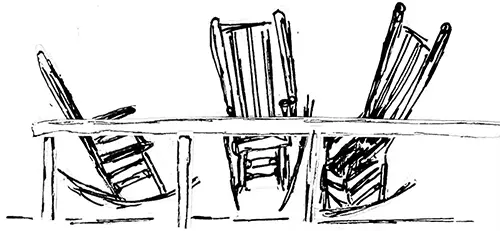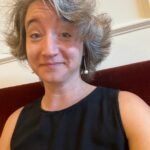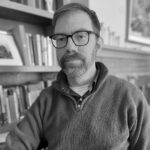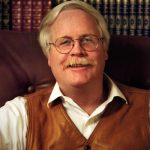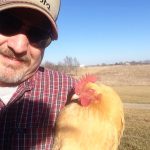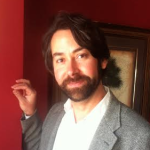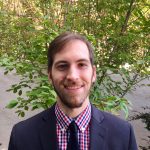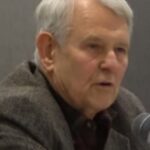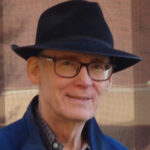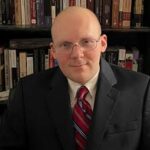The Nightstand 453
Power, Friendship, and a Better Set of Democratic “Rules”
For those tired of the fake news and play hate, who are convinced by Austin and their own better natures that accomplishing something better is actually still possible within the…
Two Cheers for Two Popes
In short, we need to rely less on building rigid ideological superstructures and more on our guts, guts kept healthy by a diverse diet of conversation and friendship. We need…
Noticing Birds
We don’t have to escape to a new and better location with more perfect neighbors. We need to lovingly attend to the ones we have.
How Farms Differ From Factories
For farming to exist sustainably, even from an economic perspective, it must be re-imagined.
Journeys in Trump Country
More interesting than the big-name hits and misses, though, are the everyday but often extraordinary people that she meets along the way. Some are firmly in the Trump camp; some…
Adjuncts, Mechanics, The Overclass, and Class War
Something has gone seriously wrong, and no one seems to have any idea how to fix it—including, alas, Michael Lind.
When Protestants Became Libertarians
Protestants and American Conservatism reveals a capacious knowledge of American religious history. As skeptics of the liberal order slowly work out a positive vision for the republic, they now know…
In Memoriam: Roger Scruton, 1944-2020
“The real wealth of a country … does not reside in the hectic exchanges on the stock market or the rivers of commodities that flow through every household without belonging…
The Knight of Faith: Franz Jägerstätter’s Hidden Life
In the midst of whatever trials come to us and whatever revelations do not, we are still called to serve, to do good, and to love our neighbors as ourselves.…
The Midwest: A Place with a History and a Future
In sum, Finding a New Midwestern History is an exemplary compilation of historical interpretations both renewed and new. The enthusiasms of Garland, Wright, and Turner—registered a century and a quarter…
The Enchantments of Mammon–and the Hope of Alternative Enchantments
McCarraher argues that capitalism works very much like a religion in the contemporary world.
Tenacious T: One Man’s Odyssey to Help Rural People
Thompson illustrates how rural people’s hopes do not align with the interests of those who wield power, be that power political, social, or economic. He teaches us that truth, fact,…
The Pleasures of a Liturgical Calendar of Reading
The day after Thanksgiving yields a joy of three parts. The first joy is that of an introvert newly restored to peace and quiet after the raucous hubbub of last…
Heaven Hath Limits
The Prior of the Upstate New York Abbey where I work often describes his cloistered life by using the phrase “living within a sonnet.” A poet himself, he’s naturally attuned…
The Agrarian’s Soul and the Gardener’s Art: Liberty Hyde Bailey Gardener’s Companion
I have no doubt this collection would delight Bailey, dandelions and all. Selecting and anthologizing the work of a writer-scholar as prolific as this is a labor of love as…
Optionality and the Intellectual Life: In Gratitude for the Real World Risk Institute
Something about Taleb’s emphasis on practical wisdom unleashes in his readers a sense of humility, a renewed trust in reason, and a spiritual hunger courageous enough to move beyond the…
Unearthing America’s History of Empire
In How to Hide an Empire, Daniel Immerwahr lays bare the consequences of the American empire and how this history has been ignored by citizens of the United States. It’s…
Two Great Interruptions
Wendell Berry’s new story is actually about two great interruptions: the first forms the occasion for Billy’s tale, and the second is how, as the title has it, the tale…
Vermont Papers Redux
All in all, mark The Vermont Papers down as a brave if idealistic attempt to chart the beginning of a campaign to preserve and refresh liberty, community and democracy in…
Sticking It Out in Green Bay: Mona Simpson’s Off Keck Road
"With her glamorous personal life and occasionally edgy prose, Simpson hardly fits the mold of the down-home writer who nurtures a sense of place. Yet..."
The Localist Theory of Charles Marohn’s Wonderfully Practical Strong Towns
[Cross-posted to In Medias Res] This past weekend, I took a group of students up to the annual Prairie Festival at The Land Institute in Salina, KS. I do this…
The Bridge and the Breach: A Review of Indigenous by Jennifer Reeser
It is a hybrid, sacramental understanding of the earth and matter and of being in the world. She seems to say that even if the earth of Chilhowee is dry…
Climate Change, Dirty Hands, and the Grace (and Hope) of Limits
[Cross-posted to In Medias Res] Paul Schrader, the famed screenwriter and director, does not make subtle films. His latest movie, First Reformed--the story of a depressed, emotionally exhausted, and ultimately…
Asceticism is for Everyone
Those who are inclined to agree with Patrick Deneen (and others) that liberalism has indeed failed may ask what way of life would be more conducive to human flourishing. Deneen…

